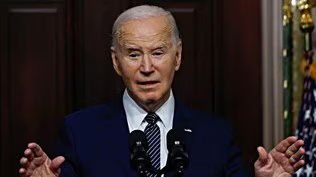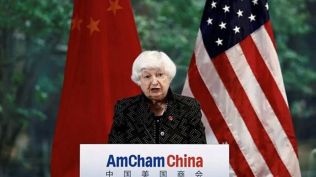Climate, clean-tech key drivers of enhanced economic ties with India, says Australia’s Ambassador for Climate Change
Cooperation on climate change and clean energy technologies is fast emerging as one of the key pillars of an upgraded economic partnership that India and Australia are seeking to forge, Australia’s Ambassador for Climate Change Kristin Tilley said in an interview.
“There is a commonality of interest and complementarity of resources and expertise. There is clear evidence that our bilateral conversations, including the Prime Minister level engagements, have had a lot of emphasis around issues related to climate change, solar energy, solar supply chains, green hydrogen and a range of related areas. My personal reflection certainly is that closer cooperation in these areas could be one of the main drivers of our economic partnership in the coming years,” Tilley told The Indian Express.

In Delhi a few days ago for consultations on climate change, Tilley said the Comprehensive Economic Cooperation Agreement (CECA) between the two countries, which is currently under negotiation, has very important components on clean energy technologies.
“Since our Prime Ministers met last year, there has been an added emphasis on our collaboration on areas related to clean energy transition and technologies. A lot of work is currently going on to define what these would look like in practical terms. But yes, things like critical minerals, solar supply chains, even green hydrogen, are very likely to become extremely important pillars of our growing economic and strategic partnership,” she said.
Tilley said Australia was fully appreciative of the need to significantly scale-up the quantum of global climate finance flows, and had already decided to increase its share from US$2 billion to $3 billion. She said the conversations around setting a new target for climate finance, above the US$100 billion per year amount, were still going on.
“This year’s climate change conference has to decide a New Collective Quantitative Goal (NCQG) on climate finance. NCQG is a rather convoluted description for the new amount that must mobilised by the developing countries every year from 2025 to finance climate action in developing countries,” Tilley said, while adding that this new amount has to be higher than the US$100 billion that developed countries, collectively, had promised to raise every year from 2020, but failed to match.
“What is clear is that the US$100 billion amount is the floor, and NCQG has to be a higher amount. But conversations around what this new amount would be are still going on. As of now, Australia does not have any public, or even a private position, on what this new number should be. It is being negotiated, and we are actively participating in it,” Tilley said.
“There are probably different layers to what the increased amount in NCQG would look like. Public finance, like official development assistance from wealthy developed countries to developing countries is obviously critically important, is at the core of climate finance flows, and needs to grow. There is no denying that fact. At the same time, there is also the need to consider the role of private sector and how governments can leverage greater funding from the private sector for climate needs and actions,” she said.
Tilley said it was clear that increasing the financial flows is one of the most difficult, yet the most important, conversations. “Australia is hopeful that by the end of the year, we would have finalised the NCQG amount. Whatever that increased number is, Australia would be happy to lean in, and contribute to the best of its ability,” she said.
Disclaimer: The copyright of this article belongs to the original author. Reposting this article is solely for the purpose of information dissemination and does not constitute any investment advice. If there is any infringement, please contact us immediately. We will make corrections or deletions as necessary. Thank you.





